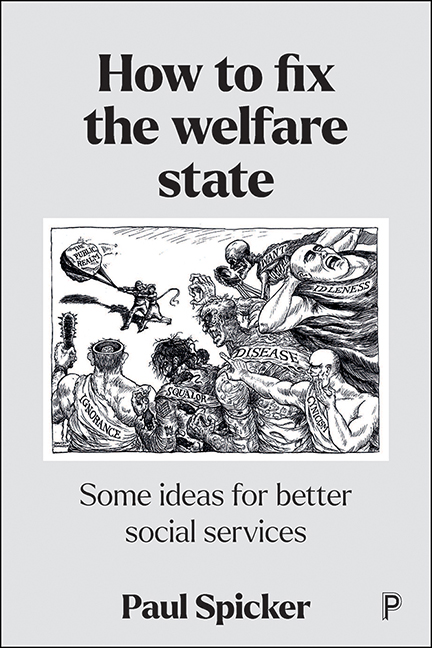Book contents
1 - The welfare state
Published online by Cambridge University Press: 15 September 2022
Summary
There are many reasons why governments provide welfare services. Some are moral. There are principled arguments based on need, common humanity and rights. There are widely held values, such as independence, capacity and dignity, all of which are enhanced when citizens have basic security. We might well consider welfare to be the right thing to do if it is consistent with the teachings of major religions, or principles of humanitarianism, benevolence and altruism. Providing welfare may be treated as fulfilling moral obligations to the people who are being protected, such as older people who have contributed to society. It may be the right thing to do simply because it makes people's lives better.
Some of the arguments for welfare services are about collective action. The provision of welfare is an expression of mutual responsibility, or solidarity; it represents both the moral responsibilities we have to each other, and it reinforces them. It promotes social cohesion and inclusion. Welfare is a tangible expression of citizenship, the status and rights we have as part of a political community. Welfare furthers the common good: the interests that people have in common, the interests they share as members of a community or members of a society, and the things which are needed for the maintenance and reproduction of a society. And cooperation for mutual benefit makes sense, even from the point of view of self-interested individuals. When they can, most people make collective arrangements with others for their mutual benefit, and to further their common and shared interests – that is how insurance works. In many societies, welfare arrangements have begun with voluntary and independent provision, and the state has only become engaged with the activity belatedly.
Then there are economic arguments. The provision of welfare has proved to be a useful tool in the management of the economy. It maintains the workforce; it builds human capital; it is an investment in people for the future. It helps to promote economic development. A casual reader of the British press may well gain the impression that welfare provision is a fetter on the economy. If anything, the opposite is true – richer countries tend, in general, to have better welfare systems.
- Type
- Chapter
- Information
- How to Fix the Welfare StateSome Ideas for Better Social Services, pp. 1 - 11Publisher: Bristol University PressPrint publication year: 2022



